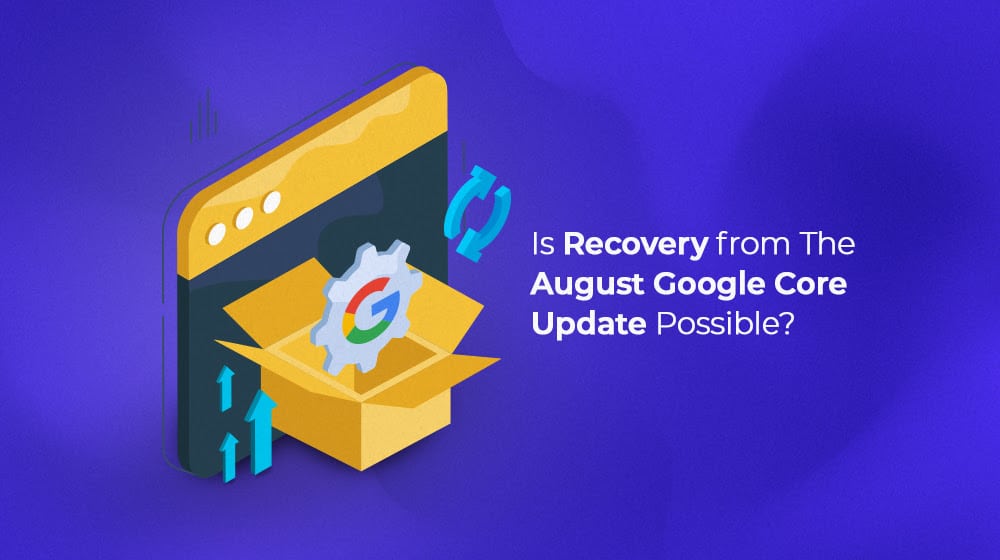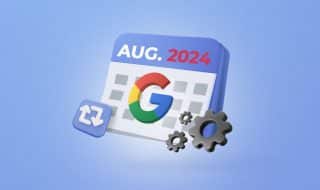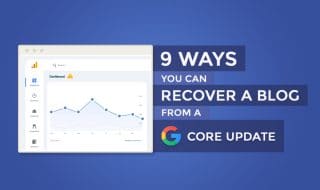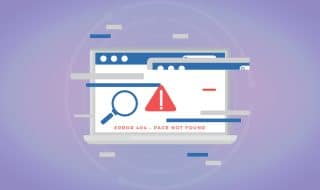Is Recovery from The August Google Core Update Possible?

Sometimes, Google pushes an update to their algorithm that affects thousands or millions of sites, and no one even notices because all of those sites are already demoted spam that you never see normally. Sometimes, they push an update that affects a narrow industry, so most people never notice, but those who own sites in that niche do.
Sometimes, though, they push an update that affects millions of sites and has impacts across all of search marketing.
The August Core Update is one of these latter updates. Initially rolled out starting on the 15th of August 2024, and completed on September third (with a bug for four days at the start that messed with metrics and analytics), the update has far-reaching consequences.
The volatility is significant, as you can see in charts from big data sources reported in Search Engine Land.
What Does the August Core Update Target?
August's core update has a surprisingly small amount of information available about it from Google, given how large it is.
In fact, it's effectively nothing more than a "phase 2" of the previous helpful content update from March.
For a more detailed breakdown of the update itself and what it means, check out this post I wrote about it.

The short version is that the August core update further ups the ante on helpful content, raising standards of what a site needs to do to be considered high-quality and helpful to users. While this was not explicitly an anti-AI update, it did hit a lot of AI-generated sites that were meant primarily to rank quickly through volume and, commonly, monetize through large amounts of ads. In my experience, I found certain ad networks to be one of the largest commonalities between sites that were hit, but that's not the only reason why sites were demoted.
You may have read on social networks and in SEO discussions that recovery from a core update is nearly impossible and that you effectively have to wait until the next core update for a reevaluation.
Is that true, or can you recover from the August core update? If so, how do you do it?
Is Recovery from the August Core Update Even Possible?
Never say never!
The way I see it, there are effectively two groups of sites that are impacted by the core update:
- The first are sites that were either new since the last core update and hadn't been added to the flagged lists or sites that took actions that put them at risk for short-term gains. These sites lose 95-99% of their traffic and have an extremely long road ahead of them.
- The other group is sites that lose some amount of their traffic but nowhere near as much. These sites generally lose out more because other sites rise up than because they themselves are punished. Think of it in a tortoise and hare situation; the hare takes a nap, and the tortoise surges ahead, even though if the hare had sustained its pace, it would be #1 easily.
The closer you are to that cut line, the easier it is to recover. The less traffic you've lost, the easier it can be to recover. Though, I've heard of sites that lost 99% of their traffic in the March update, putting in the work and getting restored in the August update.
In my mind, the sites that lose everything can recover in the next core update if they're willing to put in the work. The sites that only suffer a little can recover over time simply through the natural shifts and adjustments the algorithm makes on a daily basis.

Google essentially confirms this in their page on core updates in general.
"If you've made improvements, it may take time to see an effect in Search results: some changes can take effect in a few days, but it could take several months for our systems to learn and confirm that the site as a whole is now producing helpful, reliable, people-first content in the long term. If it's been a few months and you still haven't seen any effect, that could mean waiting until the next core update." - Google.
Google spends a lot of time and effort on the language in their help center trying to fight the implicit idea that any site "deserves" a high ranking. Google's goal is to serve the best content for a given query.
A drop in rankings, a drop in traffic, a drop in CTR; these are not indications that Google is penalizing you so much as that their algorithm feels other content is a better match. You can be a perfectly good site but drop in traffic and rankings solely because a better site comes along.
You weren't penalized any more than a local grocery store is penalized by a competitor opening up across the street.
Google's Three Tips for Recovery from the August Core Update
Google doesn't give a lot of tangible, specific information about their updates, usually with good reason; they don't want people gaming the system, ducking just under the cutline, and making it out without changing. The exception is cases when they're addressing specific problems, like Penguin's link spam or some of the more recent hits on medical misinformation pages.
For these core updates and for helpful content updates in general, Google has provided three "tips," though I use the term loosely because they're hardly actionable.
The first is to avoid doing "quick fix" changes. They mostly mean things like, "Well, I heard that if you link to a site too often, Google might think you're a PBN, so I removed all external links." Google is specifically referring to things that are elements of technical and mechanical SEO; they don't want you to be making changes with the algorithm in mind. That's the entire point, if we're being honest; they are desperately trying to get people to target people and not the algorithm with their SEO and content.
The second tip is to "consider how you can improve your content in meaningful ways." The examples they give are rewriting the content to make it easier to read or restructuring the page to make it easier to navigate. For example, doing something like adding a table of contents or adding more subheadings and reorganizing for a logical flow can be beneficial changes made to a piece of content.
The third tip is the closest thing that Google gives to the rationale behind the helpful content updates, so I'm going to quote it in full.
"Deleting content is a last resort, and only to be considered if you think the content can't be salvaged. In fact, if you're considering deleting entire sections of your site, that's likely a sign those sections were created for search engines first, and not people. If that's the case for your site, then deleting the unhelpful content can help the good content on your site perform better."
In other words, deleting a poor-performing page isn't the solution because it's likely not the pages themselves holding you back. It's about the nature of the content and the ethos behind it.

This is also the biggest indicator that Google is targeting AI sites with these updates. AI sites use generative AI to spool up hundreds or thousands of pages, none of which have any unique value because the AI doesn't have the capacity for logical thought or drawing conclusions. I have another recent post all about this, too.
Even then, it's not as much about the content itself as it is about the reason it was made the way it was. Google views AI as a tool, just like any other tool; it just happens to be a tool that can be used to whip up an immense amount of what is, effectively, spam with very little investment. The content was made to benefit the site owner through ads, affiliate links, or dropshipping, not to benefit users by providing an authoritative source of valuable information.
There's a whole other discussion to be had about whether or not it's a good thing to disincentivize for-profit sites over sites that can afford to be informational (and thus make it harder for small sites to maintain themselves), but this isn't the time or place to have it. Maybe I'll get into it later; stay tuned, and let me know in the comments if that's a topic you want me to discuss.
Actionable Tips to Recover from the August Core Update
Now, let's talk about some things you can do to try to recover from the core update as best as you're able.
First, evaluate if recovery is realistic. Some sites will be able to recover with minimal issues. Other sites are so heavily demoted that you're effectively starting over anyway. Sometimes, that's what recovery means, and there's no way around that.

Before you dig too deep, though, make sure to check your search console for manual actions. If your site is penalized with a real manual action, that's a much easier problem to solve, and you can usually file for reconsideration on a faster timeline once you solve the issue.
The truth is, if your site was spun up using AI content and is basically just a niche site meant to earn you ad revenue, you probably aren't going to recover easily. You can put a lot of work in and maybe get a recovery when the next core update rolls around, but if you don't recover then, it's probably best to move on.
Second, set reasonable expectations for a timeline. As Google mentions, if you've lost a significant amount of your traffic, Google probably isn't going to bother reevaluating you until the next core update. Since the previous gap was from March to August, the next one probably won't be until at least next February or even March again.
Third, perform a detailed content audit focusing on EEAT, UX, AI, and Value. The core updates are focused on helpful content, which means you need a content audit if you're going to have even the vaguest chance of recovering. I have a guide here to perform a detailed audit, which will get you started.

For this audit, in particular, you need to evaluate four specific elements of every single content page on your site.
- Does it convey EEAT? Expertise, experience, authority, trust: Your content needs to convey that you have some authority, that there is some reason your perspective is worth reading, why you're a good resource for the topic, and why your information is worth reading. This is the hardest to pin down and is an aggregate across your site, but you need to work it into every post.
- How is the user experience? Is there a logical flow to your content, a line from your intro to your conclusion, a point you're making, and information to support the point? Consider also various elements of technical SEO here, including ad saturation ( which is a huge reason why your site may have been demoted), core web vitals, and page speed.
- Is there real value being delivered to a reader? A huge aspect of modern content marketing is making sure your content aligns with not just the keywords being used but the intent behind those keywords. Users search for information for a reason, and you need to understand that reason and provide real information to help them.
- Do AI checkers like Originality.ai and others flag your content? If so, fix that. Yes, AI can help a lot in generating words, but it doesn't help in generating value. I believe that sites that are heavily AI without human editing are getting hammered.
Once you evaluate these, you can finally get to work to actually fix the problem.
Fourth, get to work to fix the problem. Convey EEAT, fix technical and UX issues, make your content look non-AI, and build more value into every single page. If you can't find a way to fix a page, get rid of it. If you find that you're getting rid of significant portions of your site, well… I hate to say it, but Google penalizing you is what you deserved. Be better next time around.










Comments